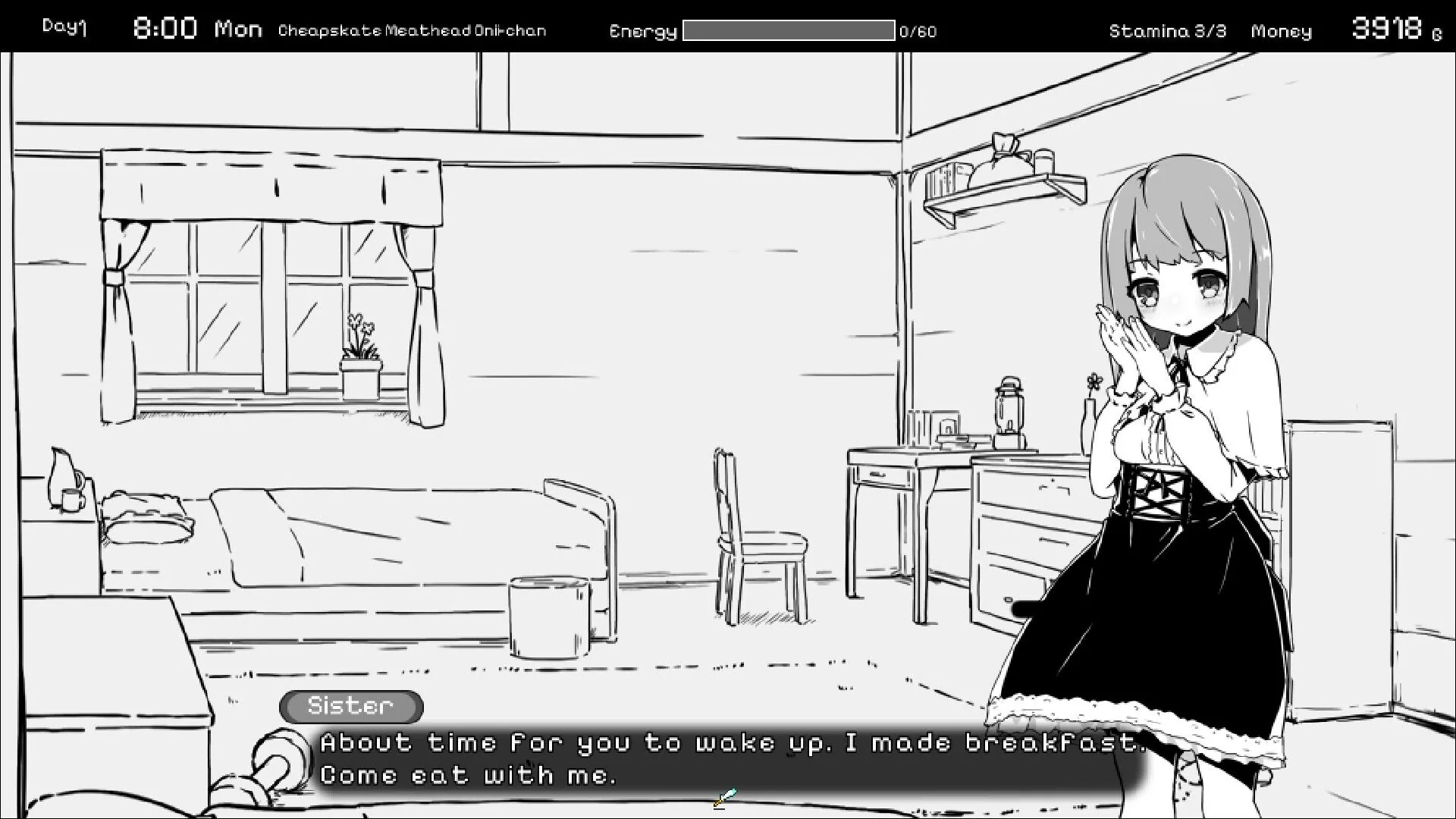
Corporate Culture
Play Corporate Culture
Corporate Culture review
An In-Depth Look at the Gameplay, Story, and Features of Corporate Culture
Corporate Culture is an intriguing interactive game that blends storytelling with decision-making elements, offering players a unique experience within a corporate-themed setting. This article dives into the core aspects of Corporate Culture, exploring its gameplay mechanics, narrative style, and what makes it stand out in its genre. Whether you’re curious about the game’s structure or looking for tips to enhance your playthrough, this guide covers everything you need to know about Corporate Culture.
Understanding Corporate Culture Game: Gameplay and Storyline
Ever feel like your office job is its own strange, high-stakes game of social chess? 😅 That’s the exact feeling Corporate Culture captures and turns into a brilliant interactive storytelling game. It’s not your typical video game; it’s a sharp, witty, and often painfully relatable simulation of climbing the corporate ladder. This Corporate Culture game overview will pull back the curtain on its unique concept: you play as a new hire at a sprawling, nebulous corporation, and your every choice shapes your destiny. It’s a character-driven narrative where your relationships with coworkers are your most valuable—or dangerous—currency.
I remember my first playthrough. I decided to be the office yes-person, agreeing to every task, and I quickly found myself buried under a mountain of work while my character’s stress meter skyrocketed. It was a powerful lesson in the game’s core philosophy: in this world, being nice doesn’t always mean being smart. This corporate setting game holds up a darkly funny mirror to real office life, and it’s this authenticity that makes it so compelling.
### What is Corporate Culture? Overview and Concept 🧐
So, what exactly is this game? At its heart, Corporate Culture is a narrative adventure built on a foundation of player agency. The core concept is deceptively simple: survive and thrive in your new job. But the path to doing so is anything but. This Corporate Culture game overview wouldn’t be complete without highlighting its genius setting. The corporation isn’t just a backdrop; it’s a character in itself—a maze of beige cubicles, buzzing fluorescent lights, and passive-aggressive memos on the breakroom fridge. 🏢
The game’s brilliance lies in its decision-based gameplay. There is no combat, no platforming, just conversations, emails, and choices. Every interaction is a potential pivot point. Do you take credit for a collaborative project to impress the boss? 🤫 Or do you share the glory and build a stronger alliance with your teammate? The game constantly presents you with these ethical and strategic dilemmas, making the corporate setting game feel incredibly tense and real. It’s a masterclass in showing, not telling, and it perfectly captures the quiet drama of office politics.
### How Does the Gameplay Work? 🎮
The mechanics of Corporate Culture are elegantly designed to serve its story. You navigate your workday through a simple point-and-click interface, moving between your desk, the breakroom, meeting rooms, and your boss’s office. The real meat of the Corporate Culture gameplay mechanics is the dialogue tree system. Every conversation is a branching path.
Your choices influence three primary, often conflicting, metrics:
* Performance: How well you’re doing your actual job.
* Relationships: Your standing with other characters.
* Stress: Your mental well-being.
Let’s say a lazy coworker, Brenda from Accounting, asks you to cover for her… again. Your choices might be:
* Agree (Help Brenda): Your Relationship with Brenda increases, but your Performance decreases as you take on her work, and your Stress likely increases.
* Refuse (Focus on Your Work): Your Performance is safe, but your Relationship with Brenda plummets. She might sabotage you later!
* Tell Your Boss (Snitch): Your Performance might get a slight boost with the boss, but your Relationship with Brenda is destroyed, and office gossip could turn others against you.
This is the crux of the Corporate Culture gameplay mechanics—there is rarely a perfect, consequence-free choice. You are constantly managing these invisible stats, and they directly determine which narrative branches open up for you and which ones slam shut. It’s a fantastically intricate system.
To break down the core Corporate Culture gameplay mechanics, here’s a look at how your decisions influence the game world:
| Gameplay Element | How It Works | Narrative Impact |
|---|---|---|
| Dialogue Choices | Select responses in conversations with coworkers and managers. | Directly alters character relationships and can unlock new story paths or close others. |
| Email System | Compose and respond to office emails, choosing tone and content. | Creates a written record of your actions; certain phrases can be used for or against you later. |
| Resource Management | Balance your time and energy between tasks, socializing, and breaks. | Affects your Performance and Stress meters, determining your character’s health and promotion eligibility. |
| Reputation Tracking | An invisible system tracking how each character perceives you. | A low reputation with a key character might lead to them withholding crucial information or actively working against you. |
### Exploring the Story and Characters 🎭
The Corporate Culture story is not one fixed tale; it’s a web of interconnected narratives that you weave yourself through your actions. You might start as a humble intern, but your decisions could lead you to become a department head, a disgraced former employee, or even someone who uncovers a company-wide scandal. 🔍 The plot is entirely emergent, born from the clash of your ambitions and the personalities around you.
The characters are what make this world breathe. They’re not just archetypes; they feel like people you’ve actually worked with. There’s Mark, the micro-managing boss who loves buzzwords but provides no clear direction. 🤦♂️ Then there’s Chloe, the overly-ambitious rival who is always one step ahead and isn’t afraid to throw you under the bus. And you can’t forget David, the 20-year company veteran who has seen it all and has become expertly adept at doing the absolute minimum. Your relationships with them form the backbone of this character-driven narrative.
Pro Tip: Pay close attention to what characters say about each other. Office gossip isn’t just background noise; it’s often a clue to a character’s motivations or a hidden questline.
Let’s look at an example of a critical decision point. Midway through the game, you might discover that Chloe has been faking her performance reports. You have a few options:
* Confront Chloe: This leads to a fiery argument. She might deny everything and become a bitter enemy, or, if your relationship was strong, she could confess and become a reluctant ally.
* Report to HR: You provide the evidence anonymously. This could get Chloe fired, opening up a promotion opportunity, but if anyone finds out it was you, your reputation as a snitch could make you a pariah.
* Blackmail Chloe: You use the information to force her to help you on a project. This is a high-risk, high-reward strategy that could massively boost your Performance but will permanently shift your dynamic with her to one of hostility and mistrust.
I chose to blackmail her once. It worked beautifully for a while—my projects were flawless. But later, when I needed a genuine character reference, she deliberately sank my chances. I was stunned. It was a brutal and brilliant reminder that in this interactive storytelling game, your choices have long-term, often unintended, consequences. This is what gives Corporate Culture immense replayability; you’ll constantly be wondering “what if I had chosen differently?” 🤔
The Corporate Culture story is ultimately your story. It’s about the persona you choose to adopt to succeed, the lines you’re willing to cross, and the cost of ambition. It’s a deeply immersive experience because it’s built on a foundation of relatable, human drama. Whether you play as a ruthless climber or a virtuous team player, the game’s rich character-driven narrative and punishingly smart decision-based gameplay will have you hooked from your first coffee run to your final performance review.
Corporate Culture offers a distinctive interactive experience that combines engaging storytelling with meaningful player choices. Its corporate-themed narrative and well-developed characters create a compelling environment that invites multiple playthroughs. Whether you’re drawn to the game’s decision-making mechanics or its immersive story, Corporate Culture stands out as a memorable title worth exploring. Dive in and discover how your choices shape the corporate world within this unique game.


























